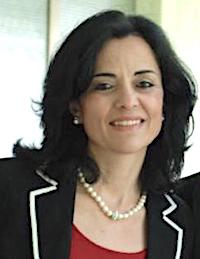 Dahlia Tawakol
Dahlia Tawakol
Deputy Assistant Minister of Foreign Affairs
Deputy Director, Institute for Diplomatic Studies
Arab Republic of Egypt
Public Policy Program (’11)
Please tell us about your career path so far. What is your area of specialization and how did you come to work in this area?
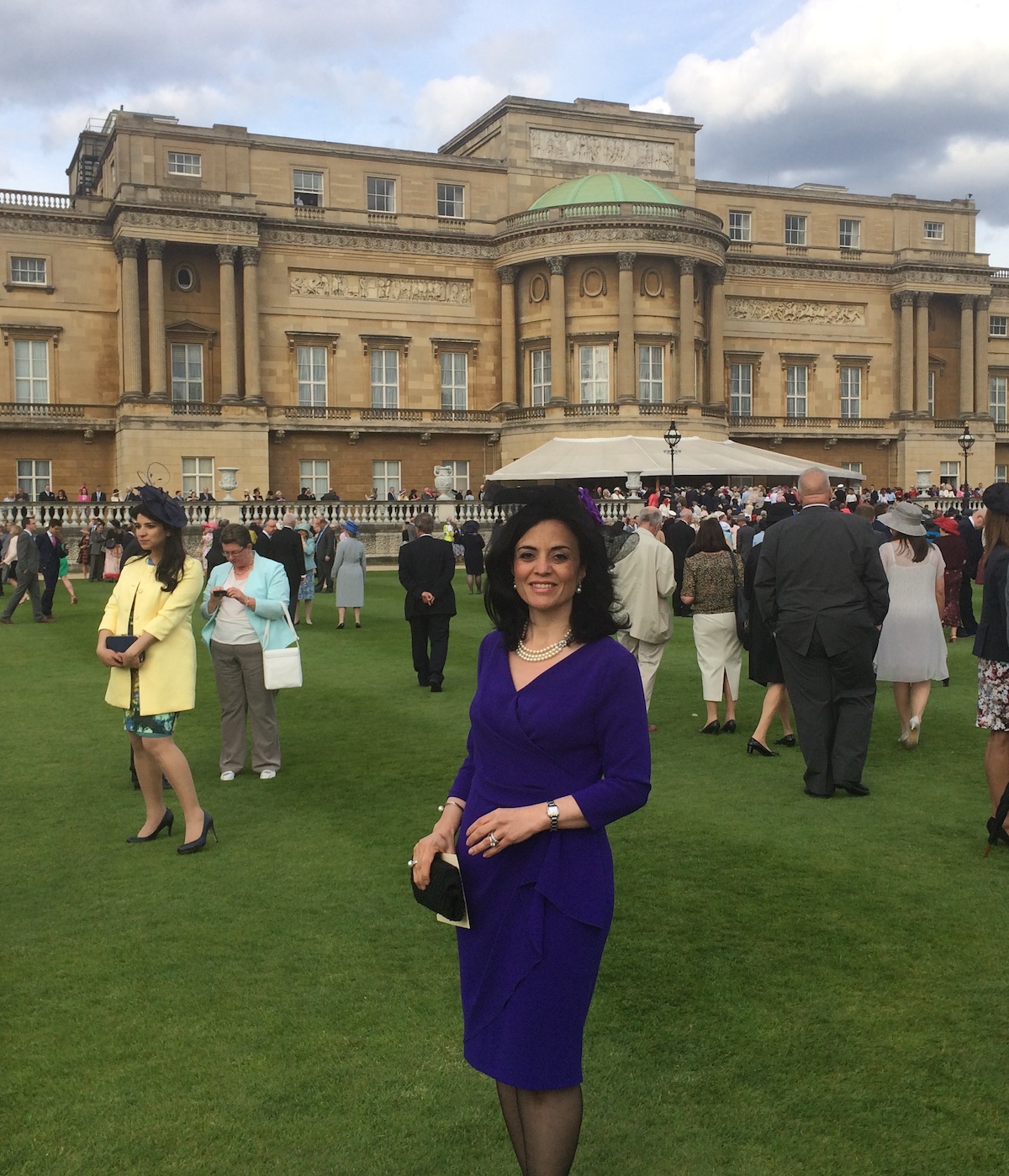
Royal Garden Tea Party at Buckingham Palace during Dahlia’s post in London., May 2015
Currently, I am Deputy Assistant Minister of Foreign Affairs, Deputy Director of the Institute for Diplomatic Studies. Being a diplomat became my goal since I started to study Political Science in 1988. I worked hard to graduate and then to join the Ministry of Foreign Affairs. Studying Political Science doesn’t mean to be a qualified diplomat because being a diplomat is not just a job in which you apply what you have learned in university but it is a whole life, “the Diplomatic Life“.
Since I was appointed as a Diplomatic Attaché in 1995, I have been interested in working at the Multilateral Affairs Sector, especially the United Nations Specialized Agencies Division, The Non-Aligned Movement Division, the Non -Governmental Organizations Divisions and the Human Rights Issues Division. After I graduated from GRIPS in 2011, I started to have a broader view which led me to work in new areas such as the Arab Affairs Sector and this coincided with the start of the Arab Spring.
In 2012, I was posted as Consul in the Consulate General of Egypt in London where I worked till August 2016. These four years were full of challenges and acquiring new skills. Being aware of the importance of academic study, I started in 2017 to study to get another master’s degree, in International and European Governance, from the University of Geneva. In 2018, I started my current post at the Institute for Diplomatic Studies where many training programs are organized for young Egyptian diplomats as well as diplomats from other countries.
In my opinion, a diplomat should be ready to deal with multiple issues and subjects, especially nowadays with the world witnessing a daily flow of events and developments.
What are some of the biggest challenges you face in your work? And what have been the most interesting or rewarding aspects of your career thus far?
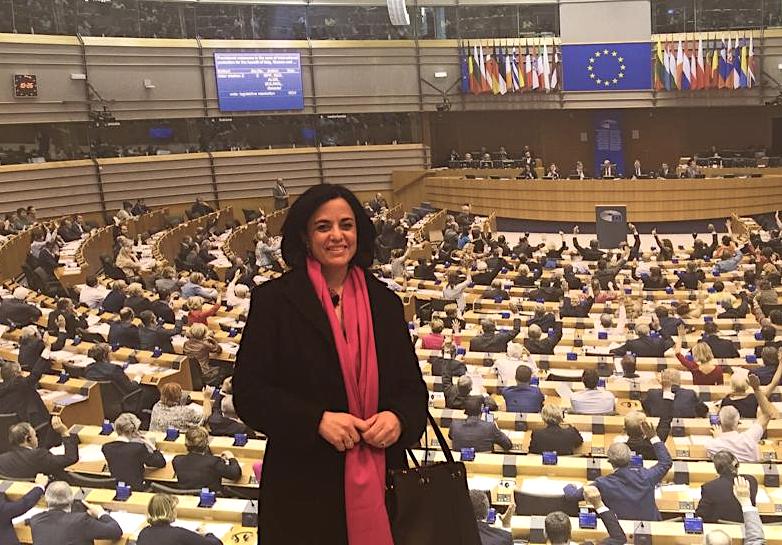
Dahlia at the European Parliament in Brussels during her visit as part of the Master Program in International and European Governance, Feb 2017
In any job there are some challenges but in a diplomatic career there are many more challenges. There are general challenges that each diplomat faces such as being ready to travel with his/her family members to different countries and how to adjust to various cultures while representing his/her home country. Foreign Affairs service is not traveling, tourism and social functions. This is what it may appears to outsiders, but the whole experience is much harder and deeper. However, the reward is significant as the diplomat acquires a cosmopolitan personality at the end of their career.
On a personal level, the most important challenge I faced was when I started my post in London in 2012 as Consul as I had never worked before in Consular Affairs. I knew there were regulations of my home country as well as the country where I was posted that should be followed and applied to be able to serve people. I worked hard to study these regulations and I didn’t hesitate to ask for advice and guidance in order to learn more and improve my skills. By the end of my post, I discovered that working in Consular Affairs is a must in any diplomatic career. Nothing can satisfy me in my career more than serving and helping people of my country to solve their problems and make them happy while they are abroad.
What led you to GRIPS? What is the most important thing you got out of your studies here and how has your experience at GRIPS prepared you for future endeavours?
My husband was posted to work in Tokyo and he is the one who encouraged me to apply to get a master’s degree from GRIPS in Public Policy. I enjoyed the whole experience which was deep and rich not only regarding the subjects but also as far as the high professional level of faculty members is concerned. The most important thing I got out of my studies in GRIPS is the significance of the respect for the other cultures and civilizations. Each culture has its set of values that has enriched world history and that should be respected by others. This development led me to have a broader perspective and stronger will to learn more and to work in new areas in my career.
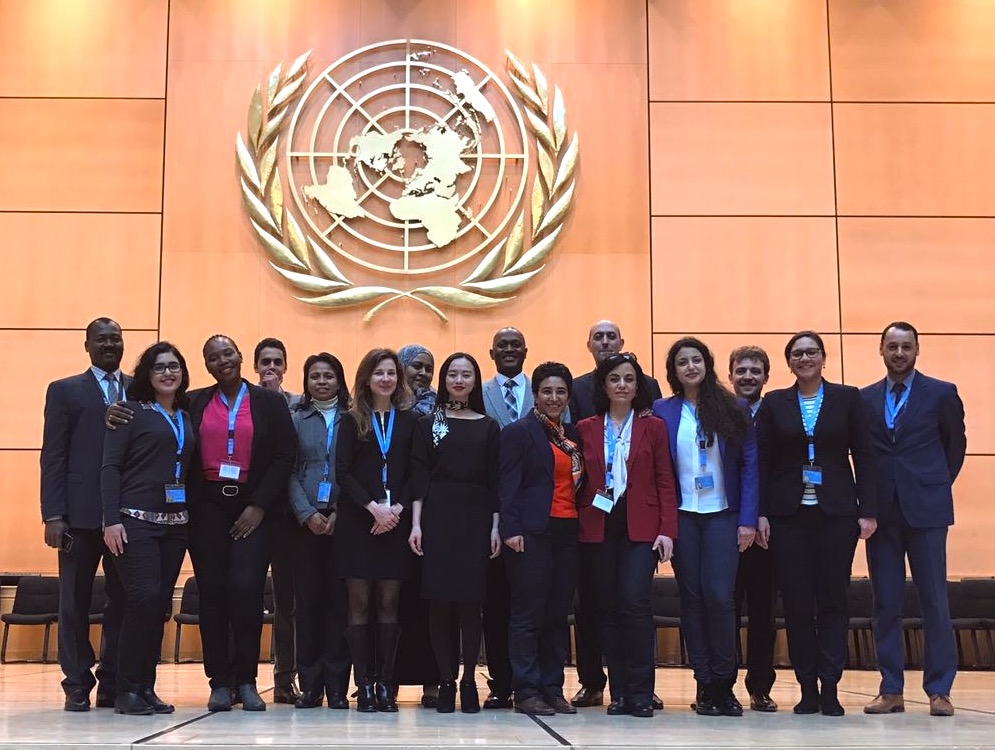
Visiting the new UN headquarters in Brussels with a group of Young Egyptian Diplomats, February 2019
Have you had any involvement, professional or otherwise with Japan, since your graduation?
Unfortunately, I didn’t have any chance even to visit Japan since my graduation from GRIPS in 2011. I would really like to get this opportunity in the near future.
How do you maintain a balance between your work and the rest of your life? And what is your favorite thing to do when you are not working?
Maintaining balance between my work and the rest of my life as a wife of a diplomat and a mother of two children has always been a challenge. However, without any hesitation, I have given priority to my family life. I have always been keen to perform my responsibilities towards my family which might have affected my work negatively to some extent as I had to take leave for long periods. In order not to be out of track, I was keen to study while I am not working which has really helped me develop my skills. In addition, I enjoy taking yoga classes, painting and cooking.
What are some of your fondest memories of your time spent at GRIPS? And what do you miss about Japan?
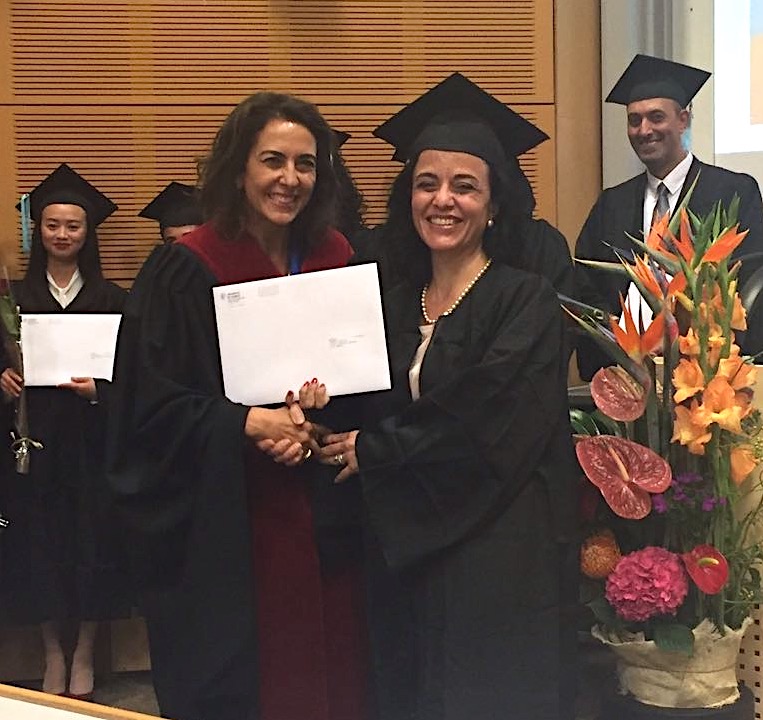
Graduation Ceremony, receiving her Master in International and European Governance, University of Geneva, October 2017
My first day at GRIPS is unforgettable as becoming a student again gave me new energy and motivation that I had missed since my graduation from Cairo University. I really liked the GRIPS Forum which represented a great opportunity to listen to VIP speakers and learn from their professional experiences.
I miss the mixture of traditions and modernity that I have only felt in Japan. Although many Japanese people are still keen to wear the kimono, these same Japanese people are also equally keen to develop the state of the art technology in the world. I also miss Spring time in Tokyo with all the Sakura trees and their beautiful and amazing colours.
If you could give one piece of advice to anyone considering studying at GRIPS what would it be?
Graduate studies are very enriching in any career. Therefore, I would encourage anyone who is getting a master’s degree to continue his/her Ph.D. graduate studies right after.
How would you like to maintain involved with the School? What do you expect from GRIPS as an alumnus and do you have any suggestions on how to further utilize the GRIPS alumni network?
I am impressed by the effort you exert as director of the Alumni Office. I am very grateful for providing me with the opportunity to be the Alumnus of the Month. I would really hope to get more involved with the School. In this regard, I have a suggestion: GRIPS could start a tradition of organizing networking events and seminars every other year in a country out of Japan, in coordination with the Embassy of Japan in that country. Various local university professors and intellectuals in that country could be invited as well.





